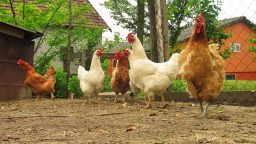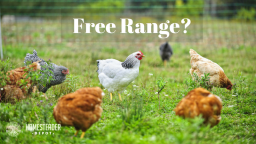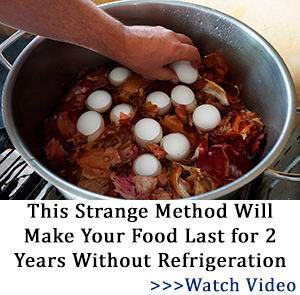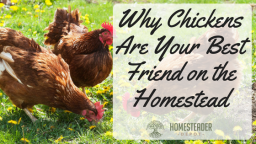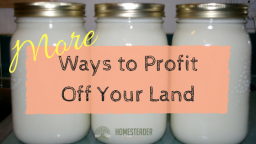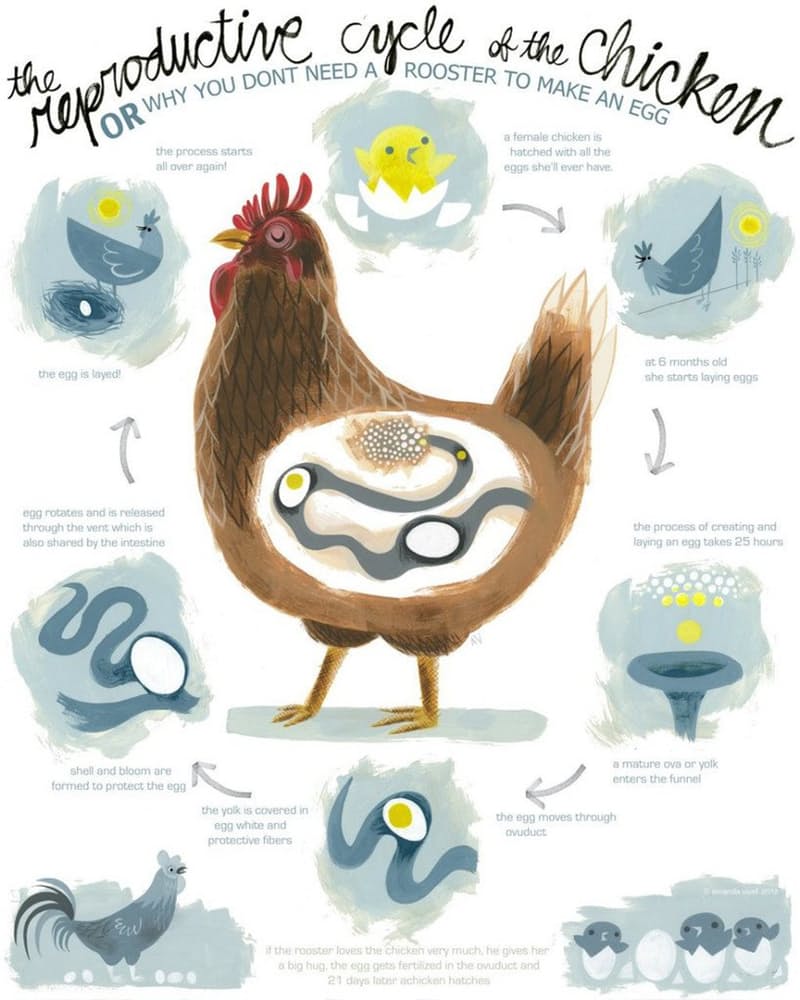Do you have chickens on your homestead?
Whether you’re wondering if you should get some, are already an experienced chicken owner, or are just wondering exactly why you chose to raise chickens in the first place, this is for you. Chickens provide several important benefits to your homestead. While their feed and coops may be a bit costly and their care sometimes intricate, what matters is that these feathered friends serve more than one purpose. They really do “earn their keep” as the saying goes.
Here’s how:
1) They Eat Insects
You never have to worry about insects invading your garden and chewing on your crops when you have chickens around. Leave your chickens loose so that they have a good-sized fenced-in area to wander. Place your garden within that space, and your chickens will go after all of the insects that they can find. Your garden will be great, and you’ll have happy chickens, as they have space to wander and a little bit of freedom.
2) They Produce Manure
Did you know that you can compost chicken waste? Their droppings make great manure, but they are too acidic to place in the garden straight from the coop. Instead, mix up some compost, using the right amount of additional elements, and add some chicken poop to the mix. It provides the right ratio of nitrogen to everything else, making your manure and compost much more effective. Your garden will benefit from what chickens leave behind.
Related Video: Build this Chicken Coop for $1 and in an Hour
3) You Can Eat Their Eggs
Although you should allow some eggs to hatch and turn into other chickens, making your flock self-perpetuating, you can also eat the non-fertilized eggs. They are much fresher than the ones found in the grocery store, and since you know what kind of life those chickens have had, you’ll feel proud of what your birds have produced. There’s nothing quite like an egg from your own flock of chickens.
The Only Book You Need to Become Self-Sufficient on a Quarter Acre
4) Butchering Your Chickens Provides Meat
Your chickens are also a source of meat. While you might feel bad about butchering your chickens once they’ve stopped laying eggs, you do need to keep your flock in good shape. This means that you shouldn’t have too many older birds and too few younger ones. Allow some fertilized eggs to hatch, and butcher those older hens.
Related Article: Why Raise Meat Chickens
5) They’ll Till Up Your Garden
Have you ever seen chickens out in the yard? They like to scratch at the ground with their feet. This actually tills up the soil. You won’t need a tiller when you have a batch of chickens who can do the work for you. Just keep them in the area where you’ll be planting your vegetables.
6) They Are Quite Entertaining
Anyone who claims that chickens are boring has obviously never been around them. These birds have some interesting personalities. You’ll be able to differentiate one chicken from another just by watching them.
Suggested Article: 5 Mistakes First-Time Chicken Farmers Make
7) They Teach Your Kids Responsibility
Teach your children how to care for chickens and instill some responsibility in them at the same time with some backyard chickens. They can be in charge of gathering eggs, feeding and watering the birds and handling all of their general care.
8) They’ll Eat Kitchen Scraps
Although you will have to supplement their diets with chicken feed, they do eat plenty of kitchen scraps as well. Just make sure that what you’re feeding them is chicken friendly and that you have the right nutrient ratios represented. Those chickens will make do with what you give them and help you dispose of things that might have otherwise gone into the trash or the compost bin.
